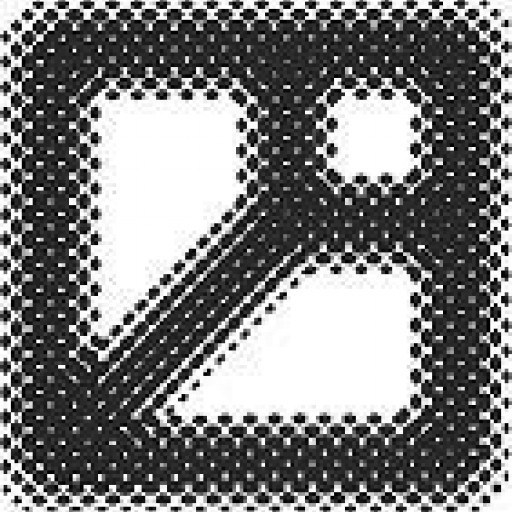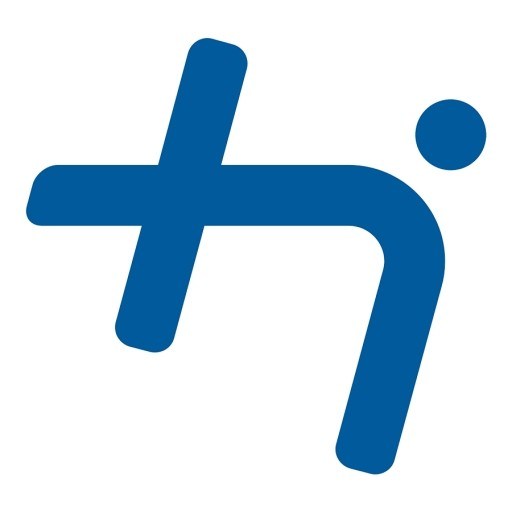Photos of university / #aaustudieliv
the mechatronic control engineering (energy engineering) programme at aalborg university is an innovative and interdisciplinary master’s degree designed to equip students with advanced knowledge and practical skills in the fields of mechatronics, control engineering, and energy technology. this programme emphasizes the integration of mechanical, electrical, electronic, and software systems to develop efficient and sustainable energy solutions. students will gain a comprehensive understanding of control systems, automation, and energy management, enabling them to design, operate, and optimize complex energy systems across various industries. throughout the course, students engage in project-based learning, which fosters teamwork, problem-solving abilities, and real-world application of theoretical concepts. the curriculum covers core areas such as mechatronic system design, embedded control, renewable energy technologies, smart grid systems, and energy efficiency strategies. students also have opportunities to specialize in areas aligned with their career interests, including automation, energy conversion, and sustainable system integration. the programme encourages innovation and entrepreneurship, preparing graduates to lead development projects in energy production, distribution, and energy-efficient technologies. graduating from this programme opens pathways to careers in industry, research, and consultancy within the energy sector, both nationally and internationally. the university’s strong links to industry partners provide students with valuable internship and networking opportunities, facilitating a smooth transition into professional roles. with a focus on sustainability and technological advancement, the mechatronic control engineering (energy engineering) programme aims to develop future engineers capable of tackling complex energy challenges and contributing to a sustainable future. students benefit from state-of-the-art laboratories, experienced faculty, and a collaborative learning environment, all designed to foster innovation and technical excellence in the evolving field of energy engineering.
The Mechatronic Control Engineering (Energy Engineering) master's degree programme at Aalborg University is designed to prepare students for a dynamic and evolving field that integrates mechanical, electrical, and control engineering with a focus on energy systems. Throughout this programme, students will develop advanced skills and comprehensive knowledge needed to design, develop, and optimize innovative energy solutions that are vital for sustainable development. The curriculum combines theoretical foundations with practical applications, encouraging an interdisciplinary approach to problem-solving in the energy sector.
Students begin their studies by exploring fundamental concepts in mechatronics, control systems, electronics, and energy engineering. Courses cover key topics such as automation and control engineering, sensor technology, renewable energy systems, heat and power production, and energy management. The programme emphasizes the integration of hardware and software solutions to create intelligent systems capable of operating efficiently within complex environments. Students learn to model, simulate, and control energy systems, gaining hands-on experience through laboratory work and project-based assignments.
A significant aspect of the programme is the focus on sustainable energy solutions and innovative technologies. Students are equipped to analyze and improve existing energy systems, contribute to the development of new energy harvesting methods, and implement control strategies for optimizing energy conversion and consumption. The programme also provides insights into the integration of renewable energy sources such as wind, solar, and bioenergy into existing grids, as well as the challenges related to energy storage, distribution, and smart grid technology.
Throughout their studies, students participate in practical projects and collaborative work, often in close cooperation with industry partners. This approach ensures they acquire real-world experience and develop essential teamwork and communication skills. The programme fosters innovation and entrepreneurship, encouraging students to think creatively about solving energy-related problems and developing sustainable solutions for the future.
Graduates of the Mechatronic Control Engineering (Energy Engineering) programme are well-prepared for careers in various sectors, including energy companies, manufacturing industries, consultancy agencies, and research institutions. They can work as control engineers, energy system designers, project managers, or researchers, contributing to the development of smarter and more sustainable energy systems worldwide. With a combination of technical expertise, practical skills, and a focus on sustainability, graduates are equipped to make significant contributions to society’s transition towards greener and more efficient energy systems.
The Mechatronic Control Engineering (Energy Engineering) program at Aalborg University requires applicants to demonstrate a strong academic background in relevant scientific and technical disciplines. Prospective students should have completed upper secondary education with a focus on mathematics, physics, and technology to meet the basic admission criteria. For international applicants, proof of proficiency in English through standardized tests such as TOEFL or IELTS is necessary, with minimum scores aligning with the university’s requirements. The program values candidates with a solid foundation in problem-solving skills, analytical thinking, and an interest in sustainable energy systems and automation technologies.
Applicants must submit relevant academic transcripts, curriculum vitae, and motivational statements explaining their interest in energy engineering and mechatronics. Prior experience or coursework related to electrical engineering, control systems, or mechanical design can enhance an applicant's profile but is not mandatory. The selection process at Aalborg University emphasizes academic merit, motivation, and extracurricular activities demonstrating initiative and innovation. Peer-reviewed projects, internships, or work experience in related fields can strengthen an application.
The program itself is designed to blend theoretical knowledge with practical application, requiring students to participate actively in project-based learning, laboratory work, and internships. To succeed, students should possess good teamwork capabilities and communication skills, as the curriculum heavily relies on collaborative problem-solving. Throughout the program, students will engage with courses covering advanced control systems, renewable energy integration, mechatronic design, and energy management strategies. Ethical considerations and sustainability are integral parts of the curriculum, preparing graduates for the demands of modern energy systems.
Admission to the program also involves meeting specific academic achievement thresholds, which may vary depending on the applicant’s educational background and country of origin. Applicants from non-EU/EEA countries are advised to consult the university’s guidelines on recognized qualifications and required documentation. Overall, the program seeks motivated individuals passionate about advancing energy solutions through innovative mechatronic control systems, aiming to develop future engineers capable of tackling global energy challenges.
Funding for the Mechatronic Control Engineering (Energy Engineering) master's program at Aalborg University typically encompasses a combination of national grants, student loans, and personal funding sources. Students from within Denmark and the European Union (EU) are generally eligible for public funding options, such as the Danish State Education Grant and Loan Scheme (SU), which provides financial support to cover tuition fees and living expenses. The SU scheme is means-tested and designed to facilitate access to higher education for Danish and EU students, enabling them to focus on their studies without undue financial burdens.
International students from outside the EU/EEA usually pay tuition fees, which vary depending on the program and the student's nationality. To support these students, Aalborg University offers a range of scholarship opportunities, including merit-based scholarships and tuition fee waivers, aimed at attracting talented candidates from around the world. These scholarships typically require application during the admission process and are awarded based on academic excellence, motivation, and potential contribution to the university community.
Additionally, students may seek external funding opportunities, such as grants from international organizations, research councils, or private foundations. Some students also finance their studies through part-time work, internships, or cooperative education arrangements integrated into the curriculum, which are designed to provide practical experience as well as financial support.
Aalborg University encourages students to explore all available financial aid avenues early in their studies planning. The university’s financial aid office provides comprehensive guidance on applying for grants, scholarships, and loans, as well as information about work opportunities on and off-campus. In certain cases, students may also access employer sponsorships or educational loans from banks, especially if they are sponsored by their employer or interested in pursuing research collaborations during their studies. Overall, funding options for the Mechatronic Control Engineering program are diverse and aimed at supporting students throughout their educational journey, fostering an environment conducive to academic excellence and innovation without undue financial hardship.
The Master’s degree program in Mechatronic Control Engineering (Energy Engineering) at Aalborg University is designed to provide students with a comprehensive understanding of integrated engineering systems, focusing on the control and automation of energy-related processes. The program combines principles from mechanical, electrical, and control engineering to prepare graduates for innovative roles in the energy sector, emphasizing sustainable and efficient energy solutions. Students learn about advanced control systems, automation technologies, renewable energy integration, and energy management strategies, enabling them to design, analyze, and optimize complex energy systems. The curriculum includes coursework in sensor and actuator technologies, system modeling and simulation, control algorithm development, and energy system integration. Practical project work is a core component, often involving interdisciplinary team collaboration to solve real-world energy challenges. The program also emphasizes the importance of digitalization, smart grids, and data analytics in modern energy systems. Graduates of this program are equipped to work in research, development, and consultancy positions within the energy and automation industry, focusing on the development of sustainable energy solutions, smart infrastructure, and innovative control systems. The program is taught in a cooperative learning environment, combining lectures, laboratory work, and project-based assignments, often in collaboration with industry partners. Students benefit from the university’s strong connections with the energy sector, providing opportunities for internships and industry projects. The program aims to develop both technical expertise and managerial skills, preparing students for leadership roles in energy engineering and control systems. Upon completion, graduates are well-positioned for careers in energy companies, engineering consultancies, manufacturing industries, and research institutions dedicated to advancing energy technologies and sustainable development efforts. The program’s international focus ensures that students acquire global perspectives on energy challenges and solutions, supported by Aalborg University's reputation for innovative engineering education.







